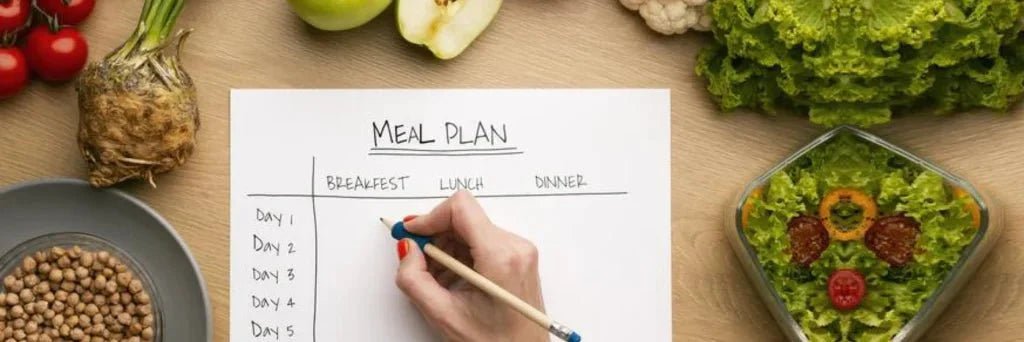It might be difficult to choose a daily meal plan for athletes, especially if you’re trying to accommodate both vegetarian and non-vegetarian diets. But, regardless of an athlete’s dietary preferences, a well-rounded meal plan may be made to satisfy their nutritional demands with some careful preparation and study. The following advice will help you choose a daily food plan for athletes that offers both vegetarian and non-vegetarian options.
Determine your calorie needs:
The first step in developing a food plan for athletes is figuring out how many calories they require daily. This can change depending on elements including age, gender, weight, height, and amount of activity. Based on these variables, there are online calculators that can assist you in calculating your daily calorie needs. When you know this figure, you may start organizing your meals accordingly.
Choose nutrient-dense foods:
Choosing nutrient-dense foods that offer the necessary vitamins, minerals, and macronutrients is crucial whether you are a vegetarian or non-vegetarian athlete. Place an emphasis on a variety of fruits and vegetables, whole grains, lean proteins, and healthy fats.
Incorporate carbohydrates:
As carbohydrates are an athlete’s main source of energy, you should include them in your diet plan. Fruits, vegetables, and whole grains are great sources of carbs. For supplementary carbohydrates, vegetarians can consume beans and other legumes.
Include protein:
Protein should be a part of every meal since it is crucial for maintaining and repairing muscular tissue. Lean proteins like chicken, fish, and turkey are good options for non-vegetarian athletes, while tofu, tempeh, and beans are good choices for vegetarians.
Add healthy fats:
Healthy fats are important for brain function, hormone production, and overall health. Incorporate sources of healthy fats such as avocados, nuts, seeds, and olive oil into your daily meal plan.
Plan ahead:
Planning ahead is key to ensuring that you are getting the right nutrients in your daily meals. Take some time each week to plan out your meals and snacks, and make sure you have the necessary ingredients on hand.
Seek advice from a registered dietitian:
If you are unsure about how to create a balanced meal plan, it’s always a good idea to seek advice from a registered dietitian. They can help you create a personalized meal plan that meets your specific nutritional needs.
Creating a daily meal plan for athletes that includes both vegetarian and non-vegetarian options is possible with some careful planning and consideration.
Focus on nutrient-dense foods, incorporate carbohydrates, protein, and healthy fats, plan ahead, and seek advice from a registered dietitian if needed. With these tips, you can create a meal plan that supports your athletic performance and overall health.
Some quick and healthy recipes that are suitable for athletes (vegetarian options):
Oatmeal with Fruit and Nuts:
Cook steel-cut oats with water or milk, and top with sliced bananas or berries, chopped nuts, and a drizzle of honey or maple syrup. Oatmeal provides slow-digesting carbs, while the fruit and nuts provide vitamins, minerals, and healthy fats.
Greek Yogurt Parfait:
Layer Greek yogurt, mixed berries, and granola in a bowl or jar for a quick and easy breakfast or snack. Greek yogurt is high in protein, while the berries and granola provide carbs and fiber.
Lentil Soup:
Cook lentils with diced vegetables such as carrot, celery, and onion in a pot with vegetable broth and your favorite herbs or spices. Serve with a side of whole grain crackers or a slice of whole grain bread.
Tofu and Veggie Skewers:
Thread cubed tofu, cherry tomatoes, zucchini, and red onion onto skewers, and grill until the veggies are tender and the tofu is heated through. Serve with a side of brown rice or quinoa for a balanced meal.
Chickpea and Vegetable Curry:
Sauté mixed vegetables such as bell pepper, cauliflower, and onion in a pot with canned chickpeas and your favorite curry spices. Serve with a side of brown rice or whole grain naan bread.
Spinach and Mushroom Omelette:
Whisk together eggs and a splash of milk, and cook in a skillet with sliced mushrooms and spinach until set. Serve with a side of fresh fruit or a whole grain English muffin.
Smoothie Bowl:
Blend together frozen fruit, Greek yogurt, and a liquid such as almond milk or coconut water, and pour into a bowl. Top with sliced fruit, granola, and nuts. Smoothie bowls are high in protein and carbs, and the fruit and nuts provide vitamins and healthy fats.
(Remember, these recipes are just suggestions, and you can always modify them to suit your preferences and dietary needs. It’s important for athletes to eat a balanced diet that includes a variety of nutrients, so don’t be afraid to experiment with different ingredients and flavors to find what works best for you.)
Some quick and healthy recipes that are suitable for athletes (non-vegetarian options):
Grilled Chicken Breasts:
Brush chicken breasts with olive oil and season with salt, pepper, and your favorite herbs or spices. Grill until cooked through, and serve with a side of roasted vegetables or a salad.
Masala Omelet:
Beat eggs in a bowl with chopped onions, tomatoes, coriander, and green chilies. Add in some turmeric powder and salt. Heat a non-stick pan and pour in the egg mixture. Cook until the omelet is set, and serve with a side of whole grain bread.
Chicken and Sweet Potato Hash:
Cook chicken with diced sweet potatoes, onions, and garlic in a skillet until the sweet potatoes are tender and the chicken is cooked through. Serve with a side of whole grain toast or a salad.
Tuna and Bean Salad:
Combine canned tuna, canned beans, chopped vegetables such as cucumber and cherry tomatoes, and a drizzle of olive oil and lemon juice. Serve with a side of whole grain crackers or a slice of whole grain bread.
(Remember, these recipes are just suggestions, and you can always modify them to suit your preferences and dietary needs. It’s important for athletes to eat a balanced diet that includes a variety of nutrients, so don’t be afraid to experiment with different ingredients and flavors to find what works best for you.)









Leave a comment
This site is protected by hCaptcha and the hCaptcha Privacy Policy and Terms of Service apply.